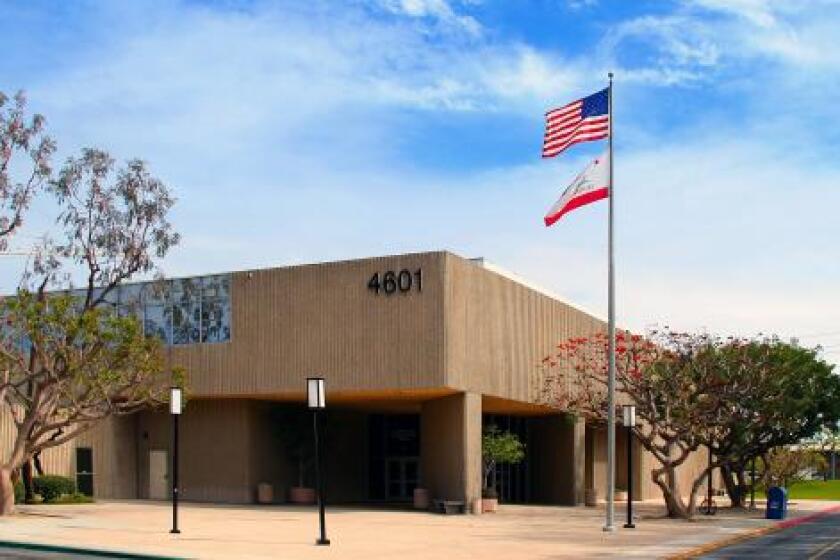Too early to call
- Share via
S.J. CAHN
In the past three weeks, two presidential front-runners -- both once
crowned by the media as locks to win their races -- have plummeted
remarkably from the ranks of the sure-to-be-elected. The first of
these, former Vermont Gov. Howard Dean, needs a miracle to win the
race for the Democratic nomination that was supposed to be his by
now. The second, President Bush, is not in such dire need, but his
poll numbers, now at about 50% approval, have collapsed, and in some
surveys, he’s running behind the new Democratic front-runner, Sen.
John Kerry of Massachusetts.
There has been plenty of hand wringing, not to mention
name-calling, among the media for assuming knowledge of how voters
would act in Iowa and New Hampshire, the first two stops on the
nominating trail.
A succinct critique was put forth by former St. Louis
Post-Dispatch Editor Cole Campbell: “[T]he campaign press corps’
stories citing all these factors, causes, dynamics and developments
[after the Iowa caucus] never mention the centrality of the campaign
press corps in picking what counts and doesn’t count in explaining --
or explaining away -- political reality. The campaign press corps
pretends it doesn’t exist, except to observe and explain. It pretends
it is a political innocent.”
This chastisement boils down, essentially, to a common complaint:
The media cover the “horse race” aspect of politics while failing to
delve adequately enough into the “important” policy positions of the
candidates.
That is, as a friend of mine would say for emphasis, a true fact.
And there are plenty of reasons for it.
The central one, I believe, is that policy makes for boring
stories. Above all other real or perceived bias of the media is this
one: The media love exciting stories (or at least what they see as
exciting). Handicapping the presidential candidates and delving into
how they are planning their campaigns, which media consultants are
about to be fired, and why one candidate is clicking with voters are
all far more interesting than who says what about the state of
healthcare or a similarly weighty topic. This bias is why we’re
likely to see a long string of stories about Bush’s service, or lack
thereof, while with the National Guard. An AWOL president? That’s
exciting news! And it wouldn’t matter if the person in question were
Republican, Democrat or Ralph Nader.
And so the media, heading into elections, fixates on who’s in
front, who’s doing what to win and who’s messing up. And they pretty
much can’t help setting up front-runners or announcing who’s out of
the race.
What’s reassuring is that they are so often wrong. The media’s
mass belief that Dean had the nomination is only the latest example.
The best, I say, is from 1991-92, when the first President Bush was
considered a lock to win reelection as he enjoyed soaring approval
ratings after the Gulf War.
It’s the best not because Bill Clinton rewrote that conventional
wisdom. It’s the best because the media were already making the exact
same mistake again this year, with yet another President Bush and
another war in Iraq. No, it will be a long, rough road to the
November election, I think. And I doubt Kerry will prove to be a
Michael Dukakis by any stretch.
All that aside, it is not solely the media’s fault that campaign
coverage is as it is. Just as members of the press corps find policy
stories tedious, so do readers. And until they up and demand boring,
policy-laden stories bulging with jargon language, the media will
continue to serve up helpings of handicapping reports.
Is there a solution? I’ve long thought that journalists should use
the more exciting pieces of the stories -- the personalities, the
quirks, the battles -- to draw readers in and then also provide more
meaningful information. It’s kind of like a spoonful of sugar helping
the medicine go down.
WHAT’S IN A CAUCUS?
On a related matter, a member of the staff here asked me during
the past week what the difference is between a primary and a caucus.
The anticaucus brigade will tell you the difference is given
voters their rights versus treating them like a part of a sham
Central European vote during the Soviet Era.
And that isn’t exactly wrong.
According to the Iowa Department of Economic Development, caucus
is an American Indian word, possibly Algonquin, that means a
gathering of ruling tribal chiefs. Today, of course, it’s a gathering
of political party members.
Why some see it as a sham is at the heart of how it differs from a
primary, which involves the classic American “secret ballot” kind of
voting.
A caucus, on the other hand, involves groups of people meeting and
publicly voting, often by the old-fashioned hand-raise or by
splitting into different groups -- the Deaniacs over here, the JFKers
over there, the Edwardians off there. (This is where anti-caucus folk
cry foul, arguing that it takes away from the one-person, one-vote
base of American democracy. If you run into any of these folks, you
can hold up the Electoral College to them as another fine example of
where our individual votes don’t exactly count.)
If you already knew all this, maybe this will come as a surprise.
Folks in Iowa caucus ever two years. Those off-presidential years
focus on the party’s platform and, not surprisingly, tend to have a
lighter turnout.
* S.J. CAHN is the managing editor. He may be reached at (949)
574-4233 or by e-mail at [email protected].
All the latest on Orange County from Orange County.
Get our free TimesOC newsletter.
You may occasionally receive promotional content from the Daily Pilot.



